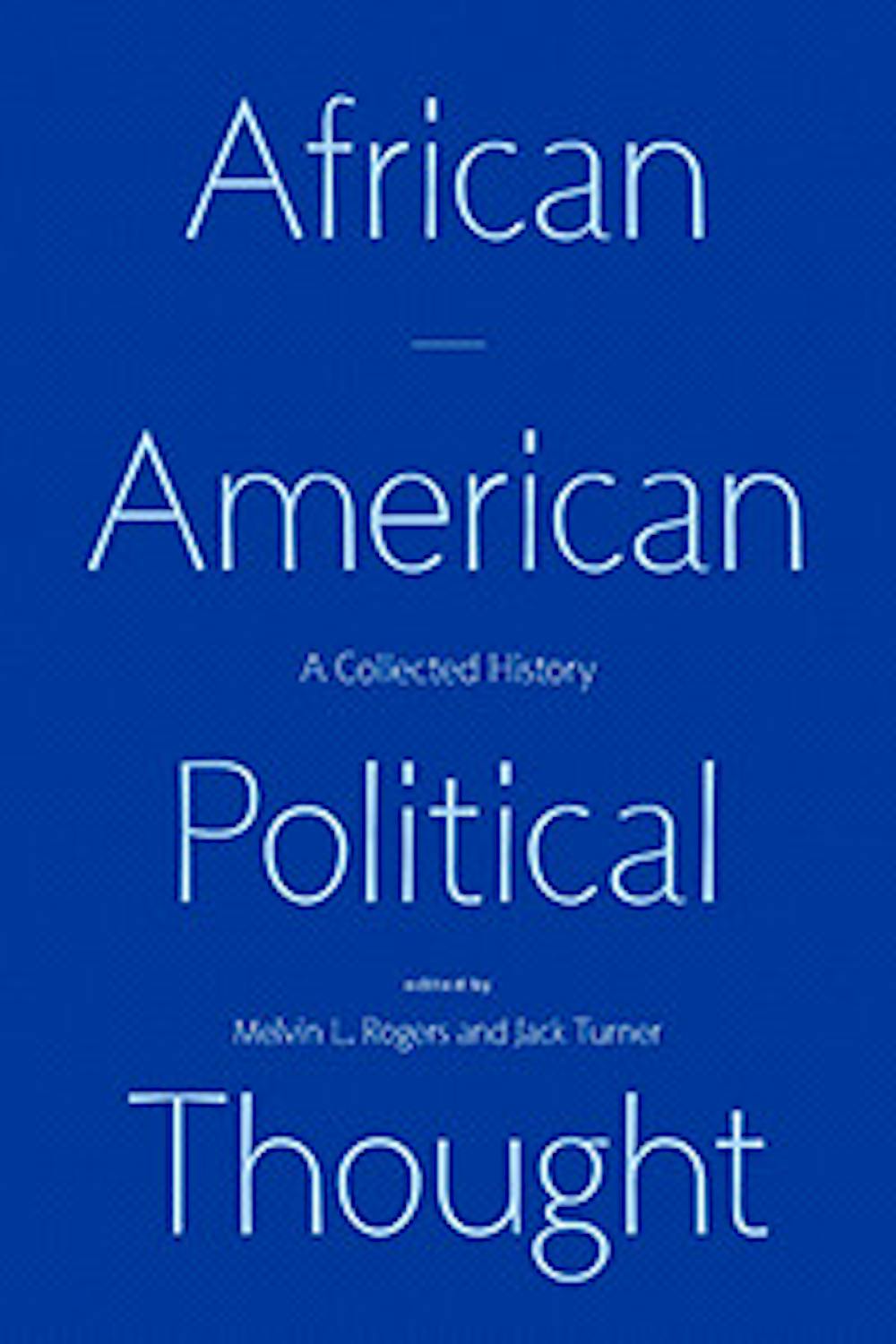In an effort to expand and nuance the literary canon of political theory, Associate Professor of Political Science Melvin Rogers published an essay collection last month titled “African American Political Thought: A Collected History.”
The book, which Rogers co-edited with Jack Turner III, associate professor of political science at the University of Washington, features 30 essays written by modern academic scholars about African American political thinkers throughout American history. Among these essays are “James Baldwin: Democracy between Nihilism and Hope” and “Langston Hughes’s Ambivalent Political Expressivism.”
The 30 thinkers featured in the book were chosen on the basis of being “central to the tradition of African American thought” and making “substantive contributions to (the) development” of the discipline, Rogers told The Herald.
Other figures featured in the book include Frederick Douglass, W.E.B. Du Bois, Angela Davis and Martin Luther King Jr., according to Rogers.
Turner added that a common pattern between the thinkers is that they “address the core concerns of Black political thought” while also being “attuned to other axes of exclusion.” Still, the thinkers vary in both their approach of how to respond to these concerns and in their placement on the political spectrum.
While “Black political thought is overall left-leaning,” there are “conservative thinkers” in the same scholarly tradition featured in the book, he told The Herald.
“It occurred to me that within just political science … there wasn’t really a book that … did justice to the breadth and depth of the tradition of African American political thought,” Turner said.
Rogers and Turner asked the writers of the essays to keep undergraduate and graduate students in mind while writing. Rogers said they both wanted students to “find an entryway” into African American political thought or “be introduced to new arguments” about the featured thinkers.
Turner hopes that readers will return to the primary texts and their original authors to “see what these texts mean to them.” He hopes the book will also further discussion among scholars.
“American political thought is … fundamentally shaped by these African American figures,” Professor of Political Science Juliet Hooker said, adding that contemporary conversations about democracy, justice and freedom should take these figures and their ideologies into crucial consideration. A historical failure to do so, she added, can be attributed to “default Eurocentrism (and) default whiteness in many fields” where “Black scholars (and) scholars of color (are not) necessarily recognized.”
Looking to the future of the scholarly field, Hooker said that she hopes further works on African American political thought will view Black thinkers “in more transnational terms” and how they drew from “ideas and sources from outside the United States.”
After the book’s recent official publication, Rogers said he was more emotional than he had anticipated. He feels grateful that he and Turner were able “to offer something up to a discipline” where there have been “missed opportunities.”
“The book is really a product of friendship,” Rogers said. Both of the scholars met as undergraduates at Amherst College and were influenced by scholars in the school’s Black Studies Department. Despite later studying at different graduate schools, they both agreed to eventually collaborate on a project related to Black history and Black political thought.
Rogers added that he would incorporate the book in his future classes at Brown and hopes that professors of the subject will do the same. Likewise, Turner said he hopes that the book will become “a very useful teaching text” in his academic work.
Kaitlyn Torres is the senior editor of community for The Brown Daily Herald's 133rd Editorial Board. She previously covered diversity as a University News section editor. In her free time, Kaitlyn enjoys listening to The Arctic Monkeys and going on archaeological digs.





